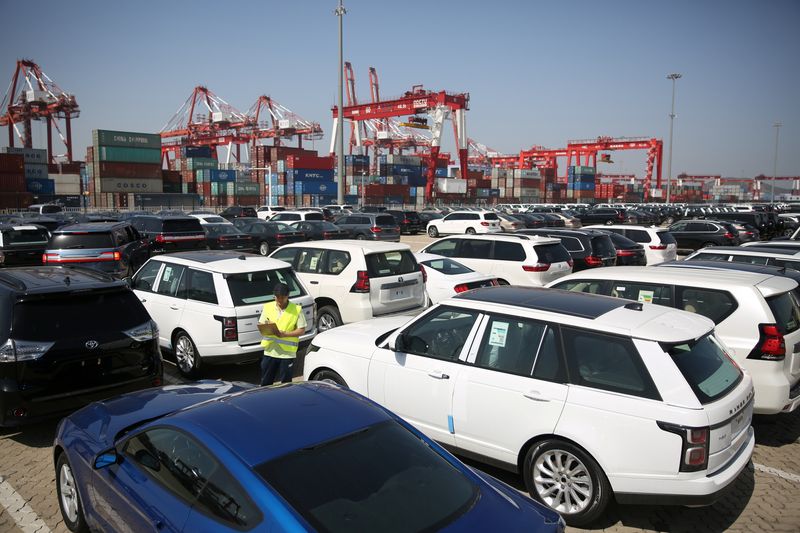US-China talks helping avoid Chinese retaliation against tariff hikes-Treasury official

By David Lawder
WASHINGTON (Reuters) – China has not retaliated against U.S. tariff increases on Chinese imports partly because of continued dialogue between the world’s two largest economies, the U.S. Treasury’s top economic diplomat said in an interview aired on Tuesday.
Jay Shambaugh, Treasury undersecretary for international affairs, told the Marketplace public radio program that Chinese economic officials came away from recent meetings with U.S. counterparts with a “more nuanced understanding” of the Biden administration’s decision to impose steep tariff hikes on EVs, lithium-ion batteries, semiconductors, solar cells, steel and aluminum and other strategic goods.
Many of the tariffs, including 100% on Chinese EVs, 50% on solar cells and 25% on steel and aluminum, took effect on Sept. 27. A doubling of duties on Chinese semiconductors to 50% will take effect on Jan. 1, 2025.
Shambaugh, who led a delegation of Treasury officials to Beijing on Sept. 19-20, said the Chinese officials understand the tariffs are narrowly targeted to strategic sectors, including where the Biden administration is making investments to develop U.S. production.
The increases, affecting some $18 billion worth of imports, capped a two-year review of the punitive “Section 301” tariffs imposed by former president Donald Trump that also kept those in place. The U.S. directly imports very few vehicles from China and has high duties on Chinese made steel products.
Shambaugh also said his team explained the increases were aimed at persuading Beijing to change its state-dominated economic practices.
“I think they were worried when they heard a review was going on that we might do something massive that would change everything in the economic relationship,” Shambaugh said of his Chinese counterparts.
“And I think once we were able to explain to them what we were doing and why, I would say they had a more nuanced understanding of what we were doing, and so you haven’t seen some sort of huge escalation or retaliation.”
While China has not announced retaliatory measures against the U.S. tariff hikes, Canada’s matching 100% duty on Chinese EVs has been met with Chinese anti-dumping investigations into canola and rapeseed imports from Canada.
Trump, the Republican nominee for president, has vowed that if elected, he will impose across-the-board tariffs of 60% on all Chinese imports, 10% on all other imports into the United States.
(Reporting by David Lawder; Editing by Chizu Nomiyama)